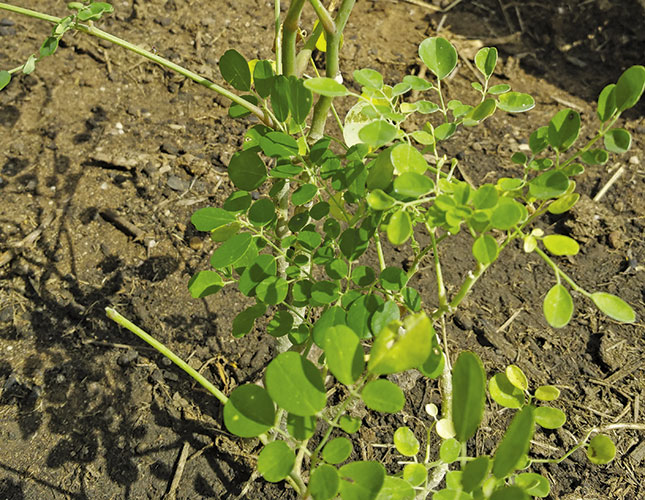
Working with horses as well as being the mother of two young children, I have a very active and demanding lifestyle. I recently began searching for a supplement that could help my body keep up with the pace. It was then that I came across a little miracle of nature: moringa (Moringa oleifera). This little powerhouse of a tree is now growing in my garden. It requires protection against frost but is drought-resistant.
I have since discovered that dehydrated moringa leaves are an excellent source of nutrition in horses. They have all the essential amino acids, beneficial fats and omega oils, and are high in potassium, fibre, calcium, iron and Vitamin C. In short, they are a top-rate supplement for helping to keep your horse’s immune system healthy. Moringa powder is also high in protein, fat, magnesium, copper, sulphur, oxalic acid, arginine, histidine, lysine, tryptophan, methionine, threonine and leucine, as well as vitamins B, B1, B2, B3, C and E, amongst others.
In ideal conditions, the tree can grow up to 3m/year. The most nutritious part of the tree, the leaves, contain 70% moisture when fresh. When the leaves are dehydrated, the moisture level drops to 8%, which in turn makes the nutrients much more concentrated.
Moringa has been used since ancient times to heal or ease the symptoms of a wide number of diseases. The fresh leaves of the plant can be eaten raw, if they are very young and tender, but usually they are cooked.
Moringa, balanced health and obesity
My horses, meanwhile, have benefited from the consumption of the dehydrated leaves. I feed them each 30g a day. Many horse owners think of providing supplements only when their animals become thin. It makes far more sense to be proactive, ensuring balanced, optimal health.
Moringa may also be able to help with obesity, which is traditionally associated with laminitis, extremely painful inflammation of the tissues (the laminae) between the hoof wall and the coffin bone. Research has shown that an extract of moringa leaves appears to have anti-obesity properties and protect the body against the adverse effects of a high-fat diet.
A daily supplement may be able reverse the formation of steatohepatitis and non-alcoholic fatty liver disorder. This could help horses to recover from liver related illness.
More milk, and better quality too
I have noticed that lactating mares fed moringa seem to have considerably more milk, and their foals have
thrived particularly well. This is just my own observation, but it is supported by similar findings by others that moringa increases both the quantity and quality of the mare’s milk. It is important, however, to feed your brood mares moringa once they have foaled down, however.








